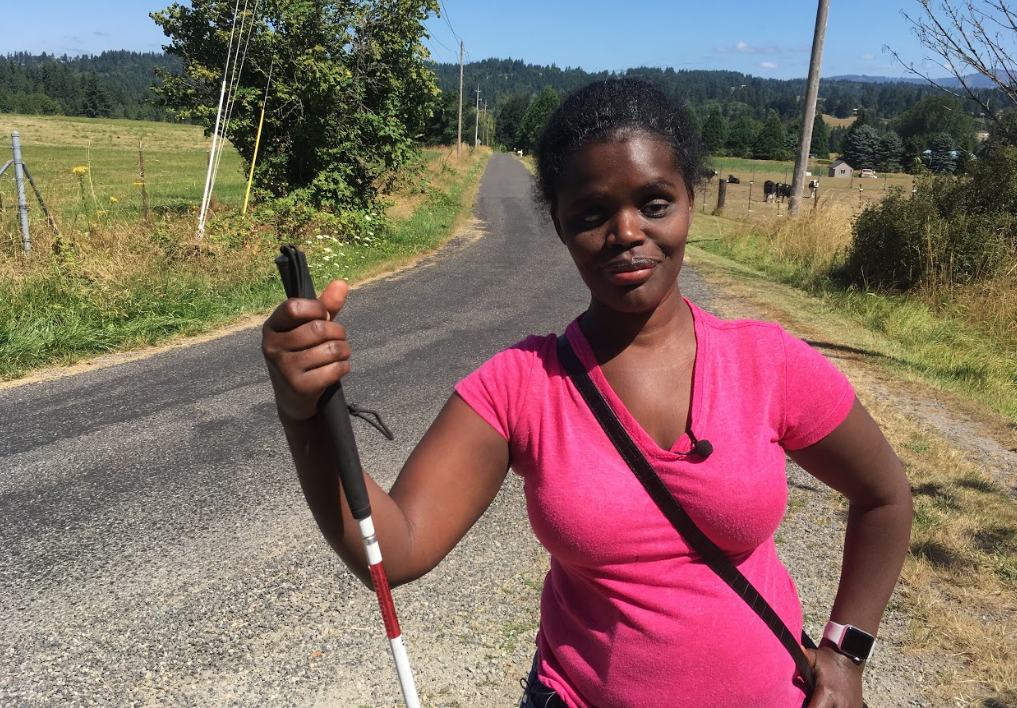
Abby’s Dream Journey
Visual Memories
Meet Abby Griffith, born Abebech Yohanis. Abby was born in Areka, Ethiopia in the Wylota Soda region.
Abby’s last visual memories are important to her, she told me. Each night, she hopes she will see what she remembers in her dreams.
“When I dream, when my visual happens, I see things I saw when I was sighted. I still see people in my dream and where I was. I can see people’s faces and when I’m walking around I don’t use a cane.”
Abby Griffith
In her dreams, she is an adult, yet what she sees are the memories that are engraved in the mind of an eight year old child.
She sees her mother, her childhood home and the areas of Ethiopia where she played as a child.
Abby’s reflecting dreams are her last tether to the visual memories she has of her life before she lost her sight.
It is not uncommon for people who become blind after age 5 or 6 years old to dream visually. Their visual references remain a part of their cognitive memory. However, a sleep study conducted by a Danish research company in 2014 found that in most people, visual dreams began to fade into darkness over time.
“I’m glad I didn’t lose those. It would be sad. I will just forget what I saw when I was little, young, eight years old kid like getting into everything, trying to figure out things, seeing sparkling things, chasing birds and bugs and everything like that.”
Abby Griffith
Her favorite thing as a child was watching and listening to birds. She loved birds so much that she would try to catch them and bring them home for pets, she said laughingly in our interview.
Abby: Oh my goodness, I love bird, it's my favorite thing.
When I was a child, I tie up basket type of thing with little thread. I hide somewhere, I put wheat and everything under, and birds go in, I catch birds and I hold them and I bring it home and my parents make me take it back outside.
We begin to laugh. So,basically you were bringing a bird home for like a pet?, I asked as we continued to giggle.
Abby:Yeah, I thought it's cute, but it's not good. But my parents always make me take it back. When I was sighted, I loved watching birds and listening too, but now I enjoy listening to birds. That's my good memory
It’s a memory she holds on tightly to, along with every other memory that she has of her early childhood up until the day that started out like any other day.
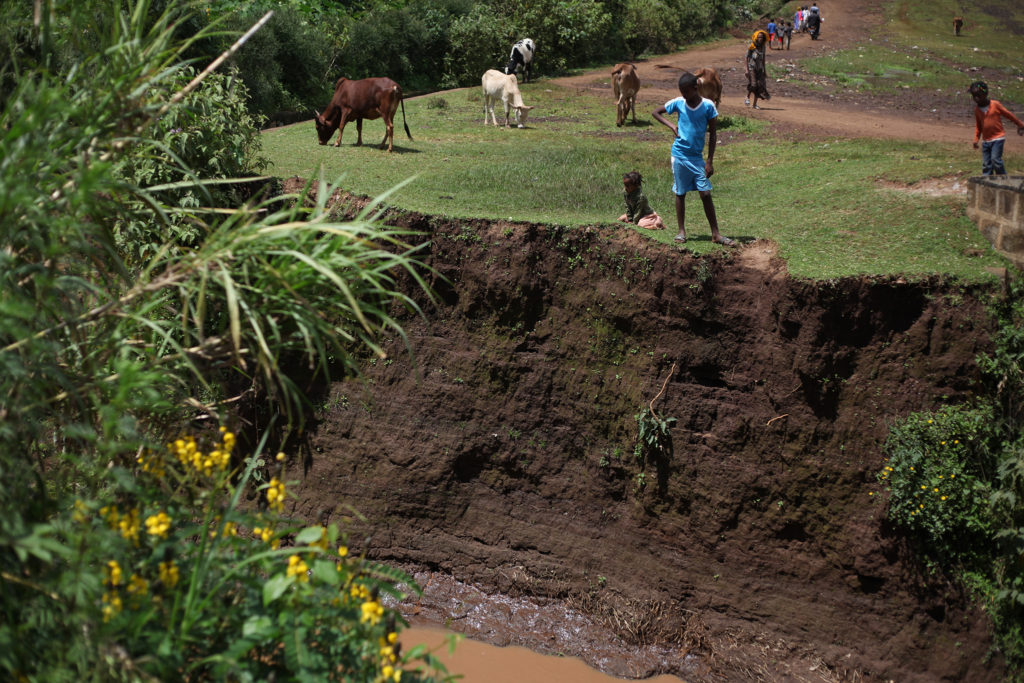
Childhood memories
My favorite memories about me being sighted, before I was eight years old, was running around going to river, playing, just enjoying myself outside seeing all different things. What I remember was a lot of trees, bushes, and beside that is river and sand, very open field. From my mother’s house it doesn’t take that long to get to river, very quiet, few houses and river is beautiful! I remember what I saw when I was sighted. My memories, all, I can just map in my mind, what I saw when I was sighted.
Abby Griffith
On the day that Abby had her accident at the river where she played as a young child, that was the last time Abby and her family ever returned to that river.
During our interview, her memories take us back to the day that started out like any other day. She was eight years old and she remembers swimming and playing tag with her best friend along the Wyobo River, about a 20 minute walk from her childhood home in Areka, Ethiopia.
“It was a day like any other day,” Abby told me. It was sunny and hot as she ran laughing and playing with her friends in the fields along the river’s edge. She didn’t have any worries. As a young child, her life was carefree, she explained to me.
On that day, while playing tag with her friend, Abby tripped and fell, coming face to face with a cobra. It spit venom in her right eye. While Abby laid there on the ground, her friend ran to get Abby’s parents. In the time it took for her mother and father to get there, Abby’s eye was severely swollen, bleeding and oozing a thick white substance.
Within days, Abby was completely blind in her right eye and within a year she was blind in both eyes.
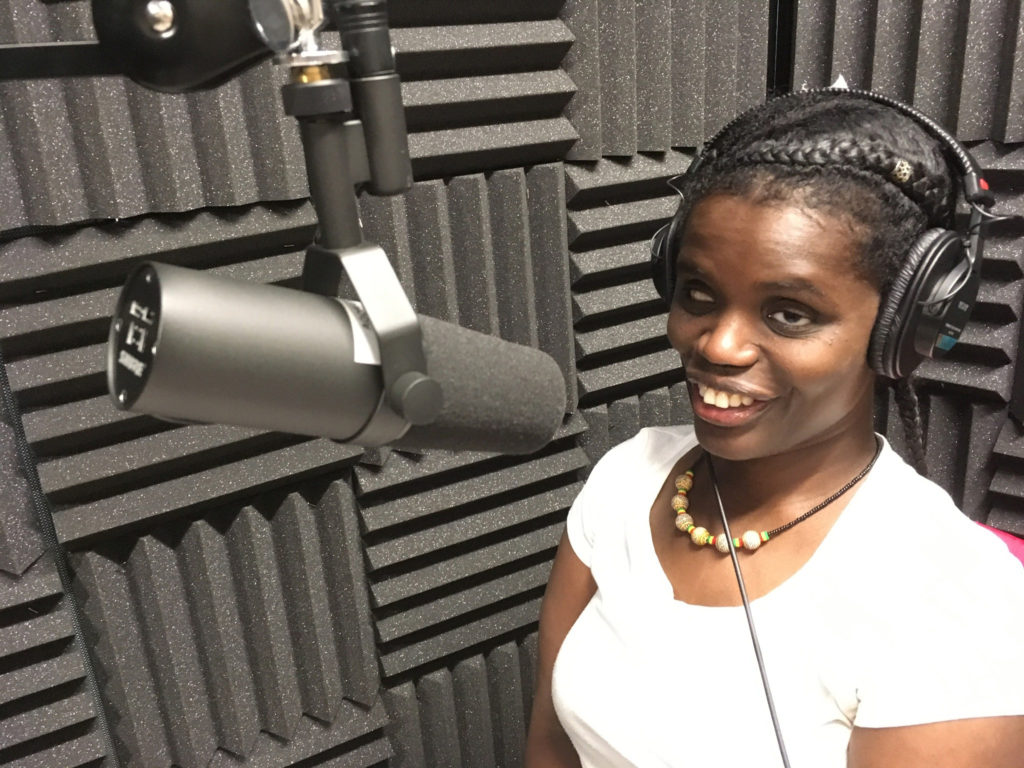
During our initial interview, Abby reflected on the emotions that she felt when she lost her eyesight.
Abby: I was very emotional, I didn't want people to look at my eye. Complete dark. After I lost completely both my eyes I always cry and I stay in a bedroom. I don't want to go out, I just don't want to do anything
After Abby lost her sight, she spent a year in her room. I would learn later that Abby’s birth mother, Abu, sat with her that whole year, until she could no longer afford it financially.
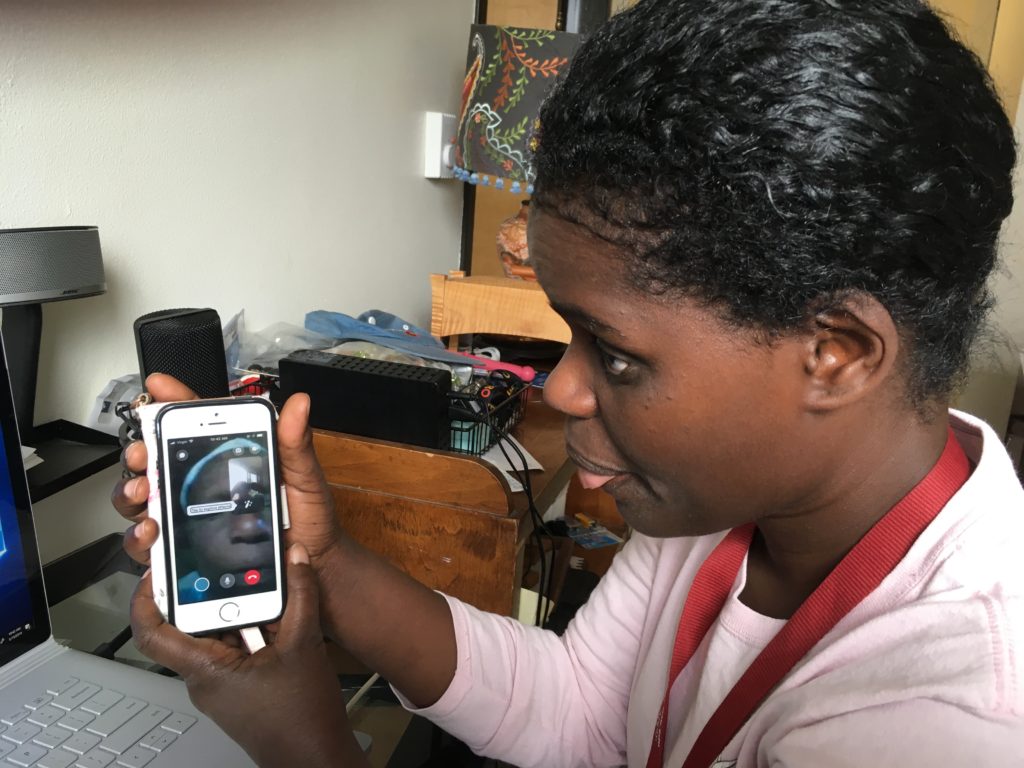
A Mother’s Love
Abu begins to speak in her language. Abby comes in with a translation
Abby Translation: She’s saying, my daughter got lucky, but when that kind of things happen to people, they die. I know a lot of people, happened to them, they died, they didn’t live.
Abu begins to speak again. Abby comes in with a translation.
Abby Translation: She’s saying that after water and blood coming out of my eyes and they took me to hospital and everywhere and she has to sell everything what she has, she took one white american doctor, far away she took me, and he told her, you should be lucky, and your daughter gonna live, but her eyes not going to work after a year.
Abby’s mother and father did everything they could for her, including going through all of their money in hopes of helping her get her eyesight back. Within a few years of her accident, Abby’s father passed away.
The limited educational resources for people who are blind in Ethiopia and severe financial difficulties for her mother led Abby to seeking adoption at an agency in Ethiopia. When she was 12 years old, Abby sought to be adopted by someone in America. Abby wanted educational opportunities and future economic opportunities to be able to help her mother.
Abby overheard at school about adoptions in the United States. She went home and told her mother, Abu, that she wanted to be adopted so she could have a good education
Abu didn’t want her daughter to leave, she was afraid she would never see her again. However, she said she knew that it was best for her daughter.
Family is important to Abby and maintaining her cultural past remains a part of her life. She made sure she always stayed in touch with her mother in Ethiopia and she sends money to help Abu and Abby’s family in Ethiopia.
The Body Remembers
While Abby and I continued our conversation, her body tensed up as she spoke about the day she had her accident. Experience has shown me that no matter how far removed we are from a traumatic moment in our life, our body often remembers.
Even though Abby is no longer that little girl, too afraid to go out, the fear of snakes is still a part of her life.
“It’s my daily life actually, like when I’m walking by myself on the sidewalk, always thinking about snakes I thought is going to go away once I move away from that area but that’s not true because it’s kind of part of my life I, guess, it’s just always”
Abby Griffith
Abby is now 26. She’s working on her bachelors degree in Human Development at Washington State University. She will graduate in the Spring of 2021.
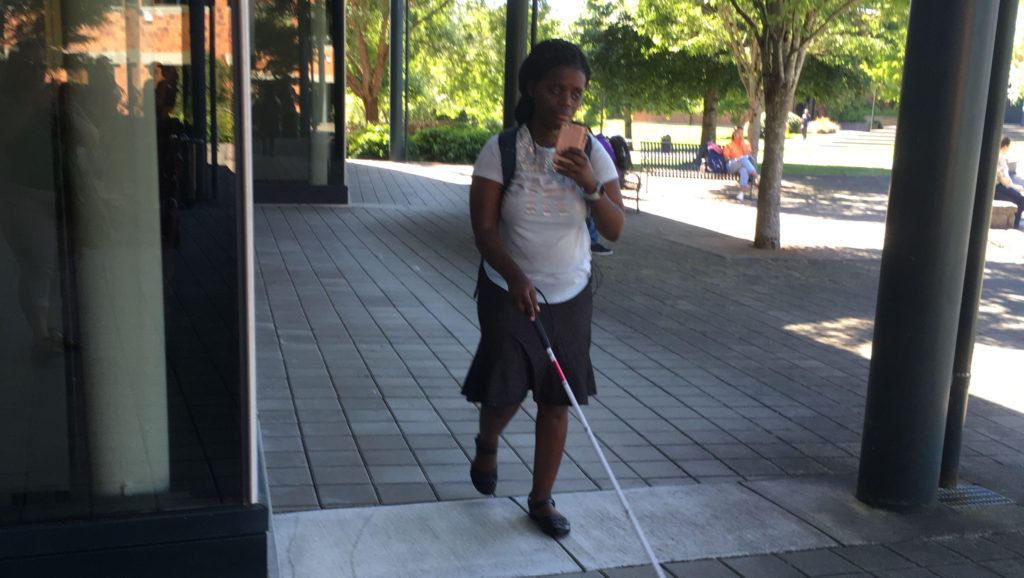
Ask anyone who knows Abby and they will tell you that she has a kind and gentle personality. “She has a heart of gold and a beautiful smile that she shares generously”, said Abby’s former Residential Life Counselor at WA State School for the Blind, Elisa Boam. Elisa went on to say that, “Abby is a role model to women and she has a “positive can-do attitude.”
It is that “positive can-do-attitude” that helped Abby overcome the obstacles she faced as a child after an accident that left her completely blind by time she was nine years old.
“She is caring and kind and always puts other people first”, said Abby’s brother Silas, “One thing that always blows my mind about her is her independence and self actualization.” he continued.
Abby’s independence and self actualization were evident when Abby walked into an adoption agency in Ethiopia to put her name down on a list to be adopted by someone in the United States.
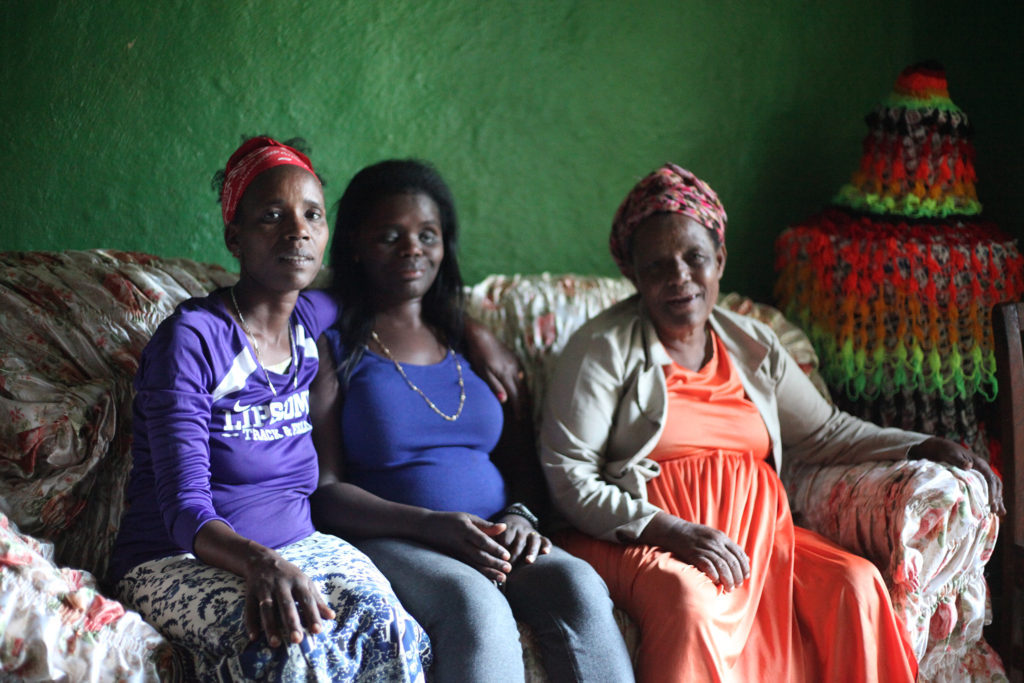
Abby’s continued relationship with her family in Ethiopia helped her maintain her native languages, Amharic and Welayta. Amharic is the official language of Ethiopia and Welayta is the vernacular of Areka. There are 83 languages and 200 dialects spoken in Ethiopia. Each region has its own language and everyone learns to speak the official language in addition to their personal regional language and dialect. Abby’s family in Areka, Ethiopia, speak Welayta to each other. Abby speaks English, Amaharic and Welayta.
Connections Made
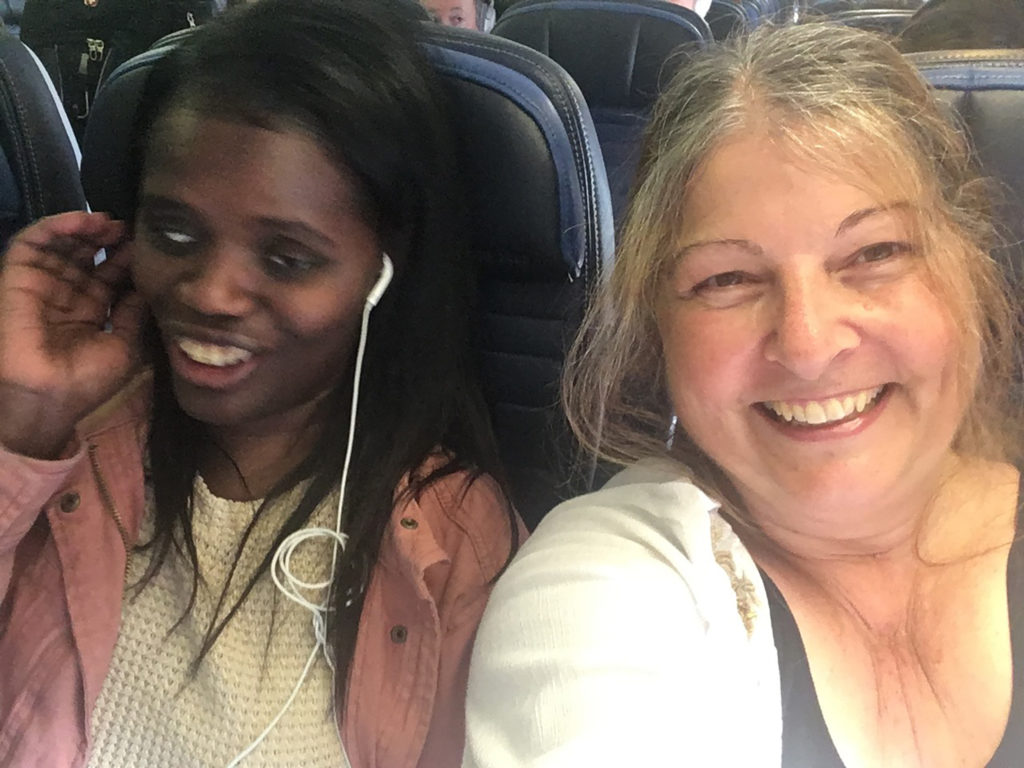
I met Abby in the Spring of 2018 when I was documenting her boyfriend David for an audio story titled “Moments and Memories Through Sound with David Bouchard“. David is also blind.
Over the course of getting to know each other, Abby and I spoke about working on an episode showcasing her current life as a college student, the technology that she uses to access her educational materials and about the importance of technology and resources for students who are blind.
We began to record her story through a series of conversations and interviews for the podcast episode about Seeing Through Hearing.
During one of our conversations, Abby told me she sees in her dreams. I was drawn to the emotion that Abby exhibited when she spoke about her dreams and how much it meant to her to be able to see her birth mother and to be able to walk freely without her cane. Something inside me, it’s hard to explain, told me to go down this path with her: to focus primarily on her visual dreams and so the initial story I was going to document about Abby changed. Sometimes the story we think we are going to tell morphs into what it was truly meant to be about and when it does, we need to allow ourselves to be open to the direction that story is taking us. That is exactly what happened with Abby’s story. In that moment, a single podcast episode about life as a student who is blind turned into Abby’s Dream Journey: an immersive audio story and sound exhibit that takes you into Abby’s visual memories through her dreams and back to Ethiopia through the sounds and moments recorded in Ethiopia.
Abby is a very private person and sharing her story is not easy for her. I appreciate the trust she put in me to let me document her story and for letting me come to Ethiopia to meet her family and to document and experience where her story began.
A Journey Home
The more Abby and I spoke about her visual dreams and memories, we began to talk about going to Ethiopia to document where she lost her sight, to record moments with her family in Ethiopia and to document the sounds of where she spent her early childhood days. It was through her dreams that we were inspired to go to Ethiopia to document where her story began.
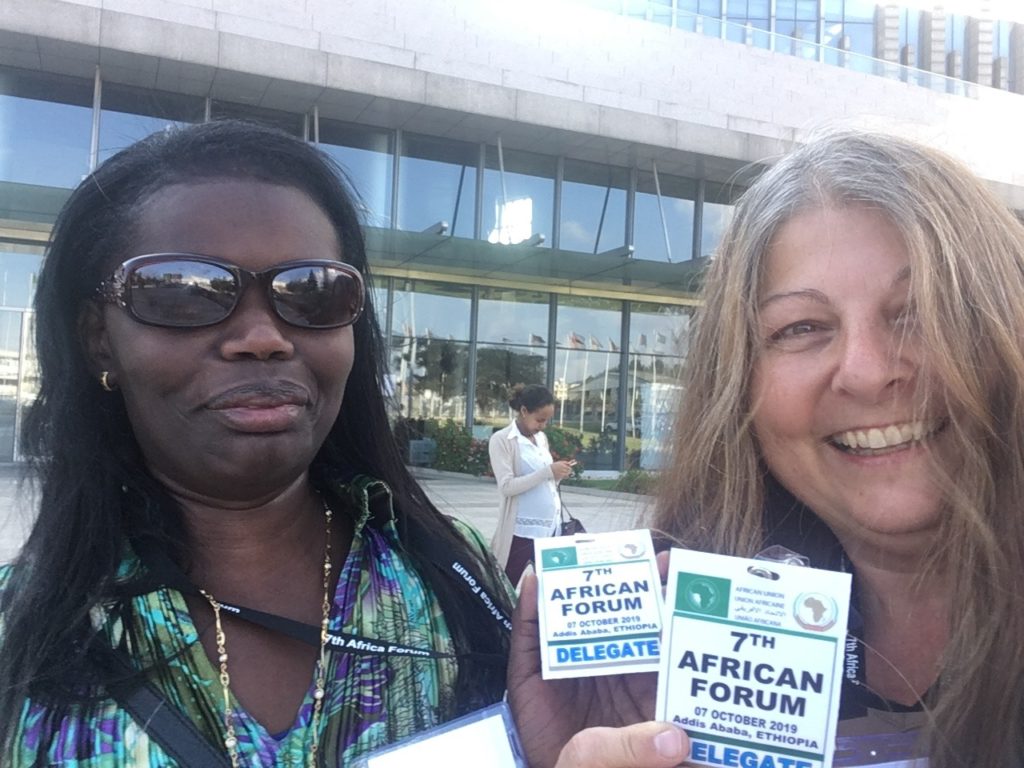
We spent two weeks in Ethiopia. Abby and I spent the first week in Addis Ababa, where we attended and co-presented at the first ever African Forum on Visual Impairment. I shared the story we are working on about her journey. Abby shared details about what her life was like in Ethiopia.
We began our journey to Areka from Addis Ababa at 4 a.m. on Friday, October 11th. With us was our driver, one of Abby’s cousins, and a graduate student from my program at the University of Oregon who was there to document the project for the University.
We spent a week with Abby’s family. We ate with them, we went to church with them and we went to their community outdoor market.
Our trip to Ethiopia was the second time Abby had come back to visit since she was 14.
Throughout our week in Areka, I recorded family interactions, conversations with Abby and moments we spent exploring Areka.
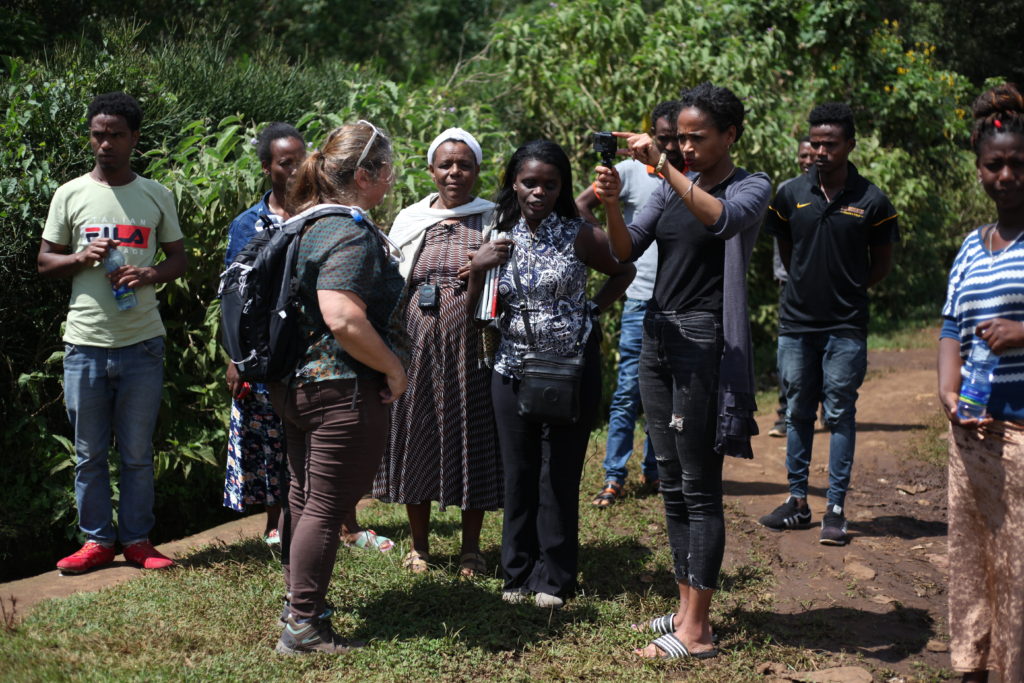
We went back to the river where Abby had her accident to document what it was like for her to be back there after all of these years. This was Abby and her mother’s first time back to the river together since Abby’s accident.
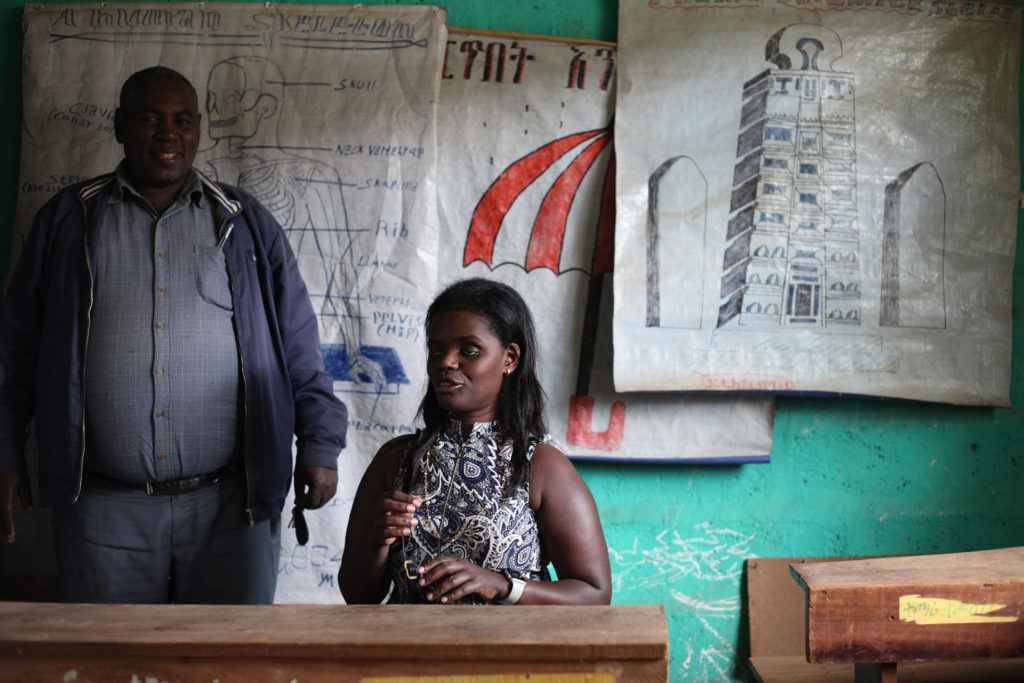
Abby contacted her former teacher, Moses, to ask if we could record Abby and him talking about her time at the Ligaba Primary School where she learned to read braille.
Ligaba Beyene School is a school for the blind and sighted students. At this time, there are 32 blind students ranging from 6 years old to their mid 20s. All of the students who are blind, learn how to read and write braille in a single classroom.
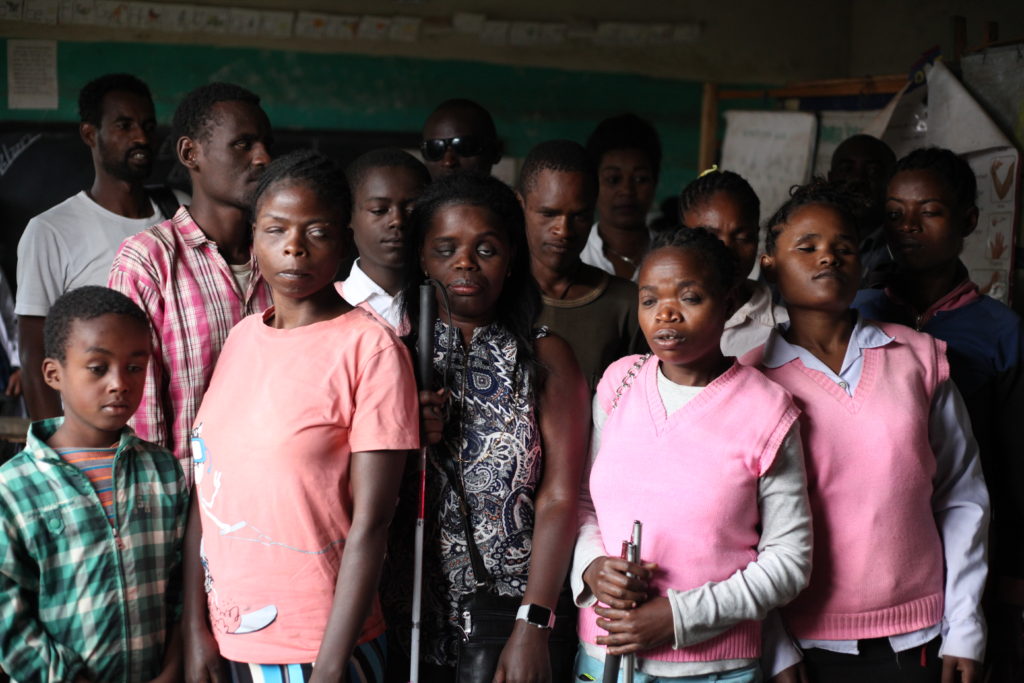
Abby and Mary Anne are planning on returning to Ethiopia in 2021. They will share Abby’s Dream Journey, and document and advocate for the needs of students who are blind at the Ligaba Primary School Wolaita Sodo Ethiopia, where Abby learned to read braille.
Reference Notes:
Foulkes D. Children’s dreaming. In: Cavallero C, Foulkes D, editors.
Dreaming as cognition. New York: Harvester Wheatsheaf; 1993.
p. 114-132.
Kerr N. Mental imagery, dreams, and perception. In: Cavallero C,
Foulkes D, editors. Dreaming as cognition. New York: Harvester
Wheatsheaf; 1993. p. 18-37.
Sleep Medicine Volume 15, Issue 5, May 2014, Pages 586-595
Article: Mother of 7 finds balance in kids, school, farm. The Columbian, Published: May 8, 2016